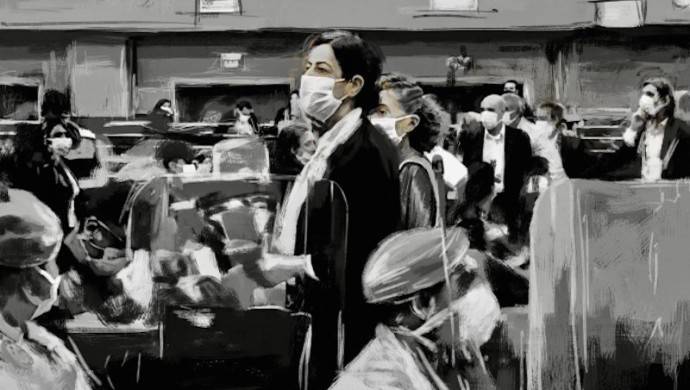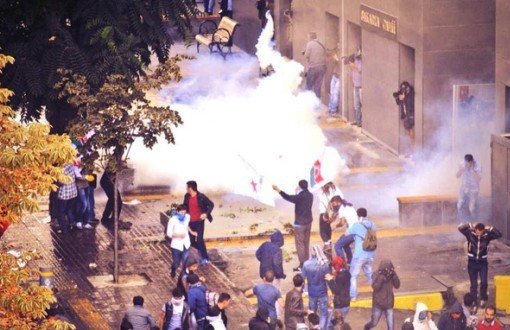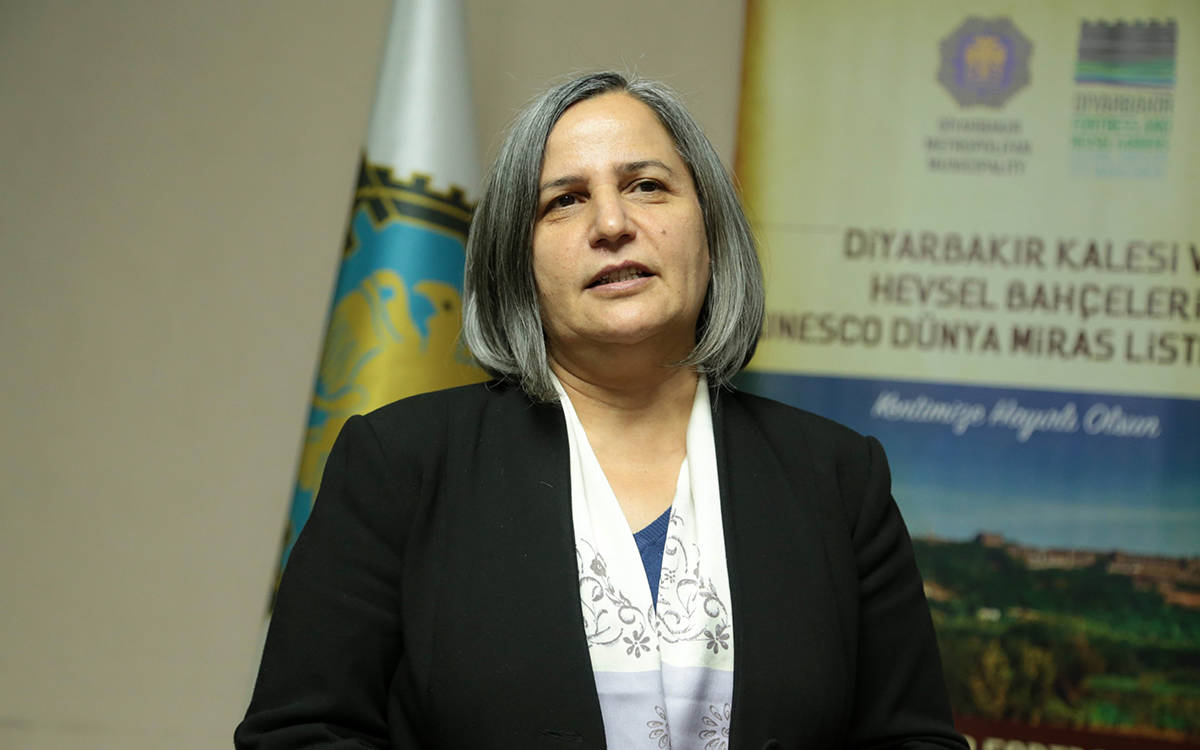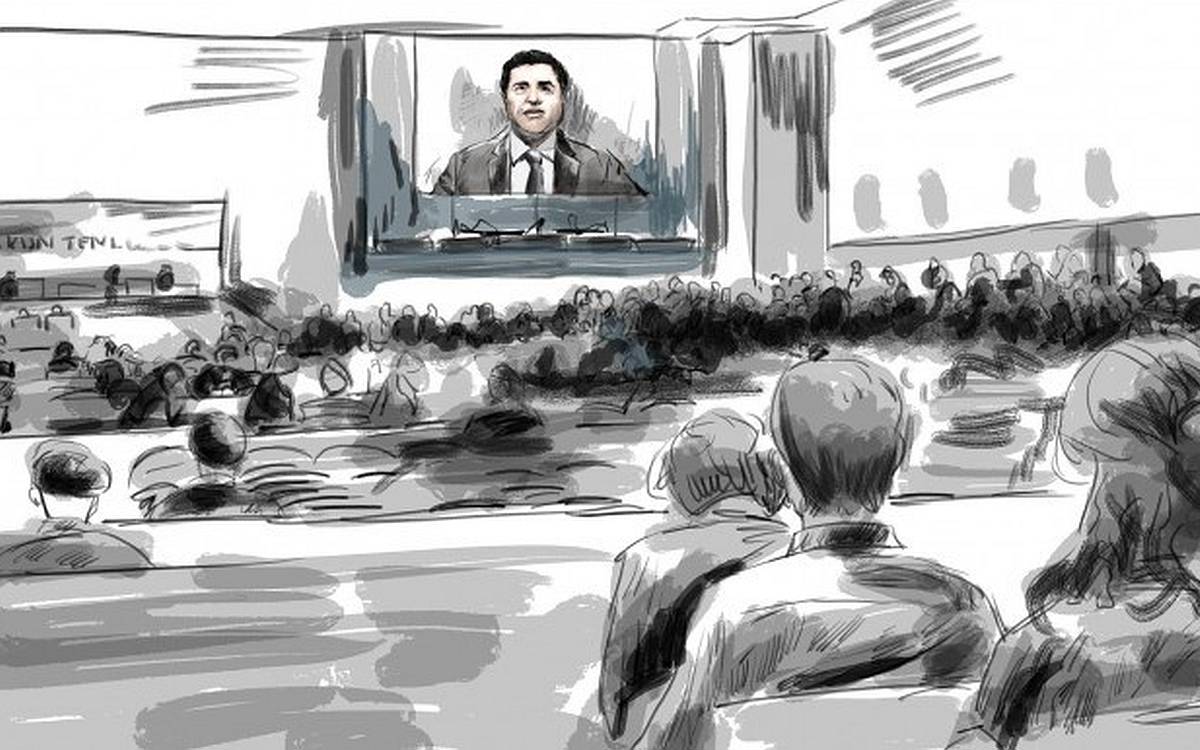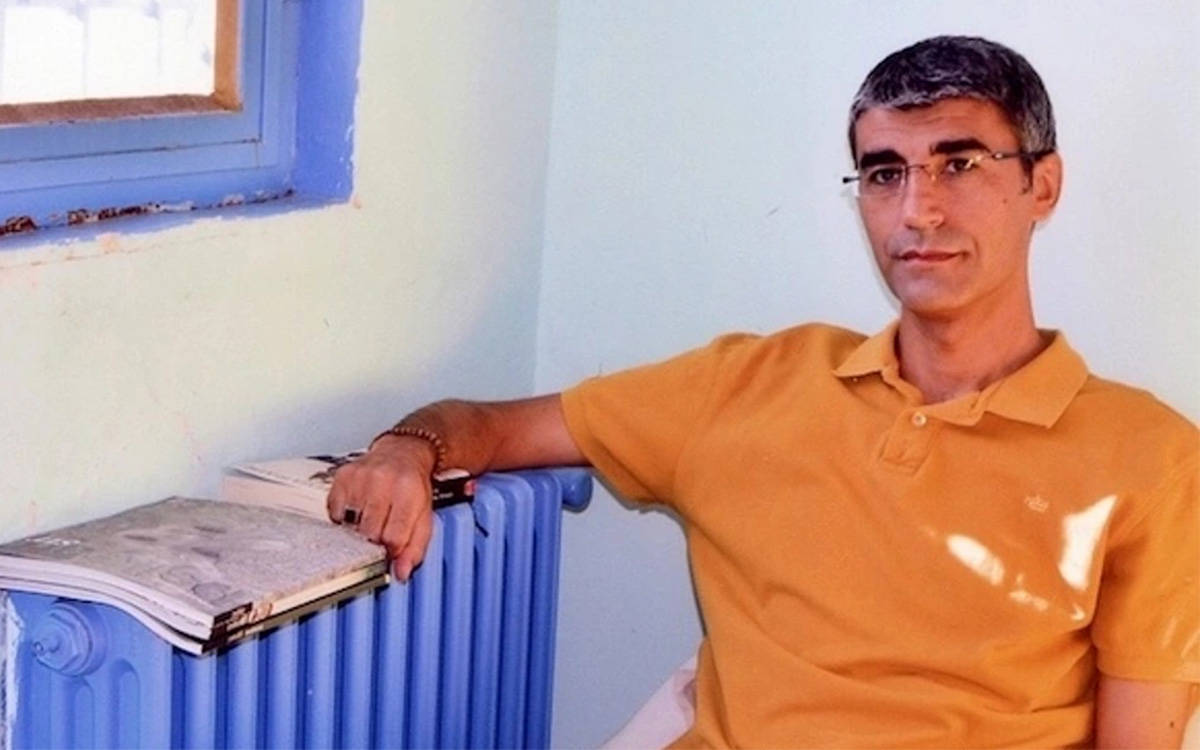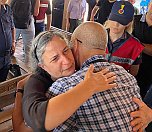The 40th hearing session of the Kobanî trial took place yesterday (November 12) and is continuing today at the Ankara 22nd Heavy Penal Court within the Sincan Prison Campus.
In the trial, 108 individuals, including former Co-Chairpersons of the People's Democratic Party (HDP) Figen Yüksekdağ and Selahattin Demirtaş, former Co-Chairperson of the Democratic Regions Party (DBP) Sebahat Tuncel, Honorary Chairman of the HDP Ertuğrul Kürkçü, and members of the HDP Central Executive Board, are being prosecuted.
The indictment, consisting of 3,530 pages and 324 folders, charges the 108 politicians with offenses such as "undermining the unity and territorial integrity of the state" and 37 counts of "murder," among other crimes.
Parmaksız: "Art is calling me"
Bülent Parmaksız, a politician being held in custody during the trial, stated that there have been 30 interim decisions in the case, but he has never requested release. Expressing for the first time that he will seek release, Parmaksız said, "Art is calling me. Italian tenor, lyricist, and composer Andrea Bocelli is coming to Turkey. I request my release to attend his concert."
Another politician jailed and standing trial, Dilek Yağlı stated, "Not a single concrete evidence has been presented for the alleged charges. Therefore, I reject the entire indictment. I request my release."
Kışanak: Automatic violation of my right to fair trial
Gültan Kışanak, the former Diyarbakır Co-Mayor, whose maximum 7-year detention period has expired but has not been released, participated in the hearing via SEGBİS from Kocaeli Prison.
Kışanak, stating that they have reached a breaking point in the hearings due to dealing with an unmanageable indictment, expressed:
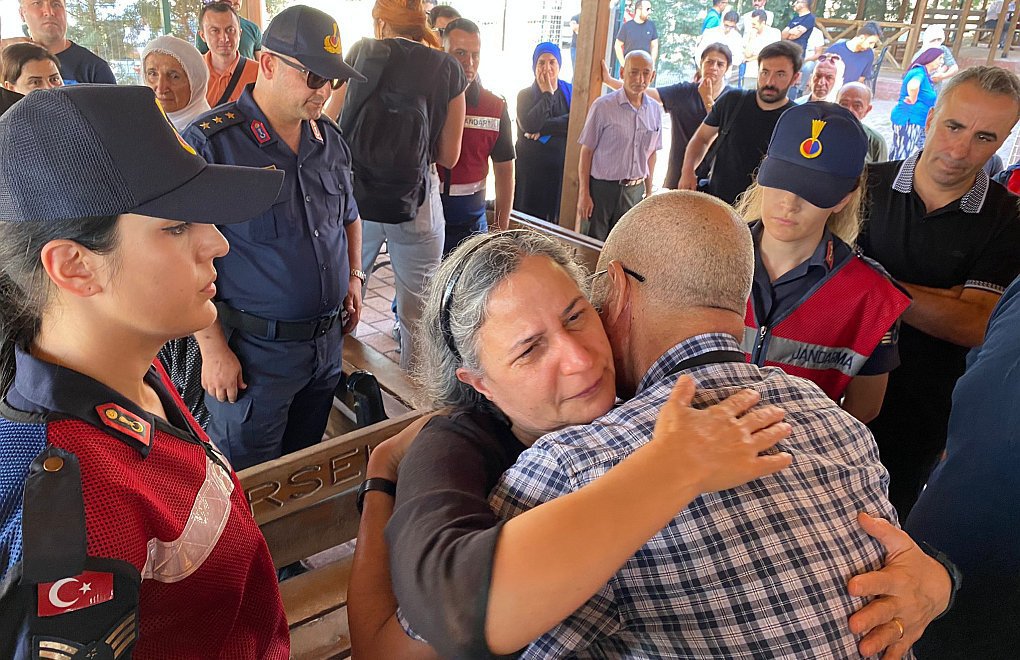
Imprisoned Kurdish politician Gültan Kışanak attends sister's funeral after temporary release
"I emphasize the unlawfulness of this situation. This is, in essence, an automatic violation of my right to a fair trial. You are aware of this. Before presenting my defense, I would like to send greetings to the Palestinian people. I feel the pain and tragedy they are going through, just as I felt Kobanî in my heart at one time.
Unfortunately, those who drew the borders of the Middle East formally withdrew from here, but upon leaving, they left behind two major problems. One is the Kurdish issue, and the other is the Palestinian issue. The powers wanting to intervene in the Middle East left these two problems as a legacy, and thus, they are surfing in the Middle East as they wish."
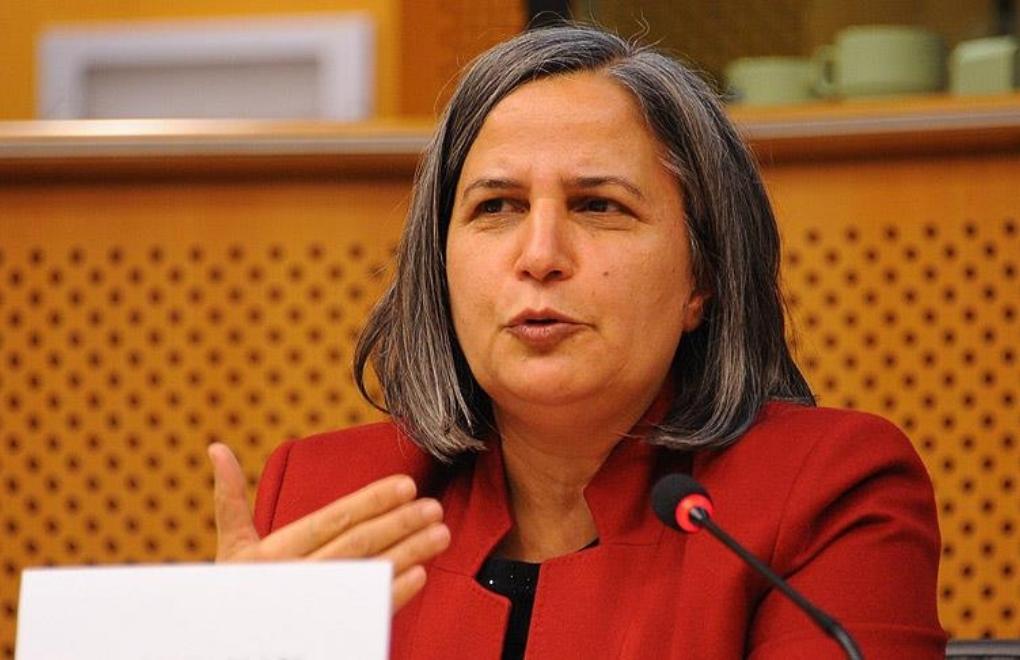
Kışanak writes from the prison 'as a socialist': 'Nobody has the right to waste a single vote'
"Is it wise to request release from you?"
Referring to the criminal complaint filed by the 3rd Criminal Division of the Court of Cassation against members of the Constitutional Court (AYM), Kışanak stated, "In a country where such a situation exists, whether it is wise to request release from you or not is left to your discretion. I wish the issue were that simple. The real reason for the matter is that the doors of the Constitutional Court have been locked for the past year."
"I'm not saying that the Constitutional Court evaluates every decision correctly. However, there is only a thread-like connection between us and the rule of law, and I don't want that to break. How can I talk about the guarantee of law in a country like this?"she added.
Kubilay: "The Constitutional Court is de facto closed"
Following Kışanak, Günay Kubilay, in his defense, stated that the review of his detention is conducted every month according to the Criminal Procedure Code (CMK). "However you are not releasing me no matter what," Kubilay said:
"We are going through a period of legal absurdity. Indeed, there was a constitutional process, even if it was on a formal level. Now, the Constitutional Court is de facto closed. In other words, it does not matter whether the Constitutional Court makes a decision or not, from now on."
Adıbelli: "There is no evidence for any of the charges"
In her defense in Kurdish, Meryem Adıbelli noted that there is no legal basis for the indictment:
"Mr. Chairman, we have been in prison for more than three years. Whoever you present this indictment to, they will say the same thing. There is no evidence for any of the charges directed towards me. As many of our friends have also mentioned, the Prosecutor has put whatever he had in front of him into the indictment. Without presenting any evidence, he has filled in everything that came his way and accuses us with these. I request my release."
Ölbeci: "You haven't found evidence till now, how will you find it from now on?"
Zeynep Ölbeci, in her defense in Kurdish, drew attention to the state of the judiciary, stating, "I do not accept the prosecutor's opinion on the substance, both the one from this morning and the previous one. Because all of our work has been criminalized. All our work has been attributed to PKK-KCK, presented as their activities. I want to ask the prosecutor; where were you while so much terrorist activity was taking place? So far, you haven't found any concrete evidence against us, will you find it from now on?" She then requested her release.
Court: Judicial control is insufficient
While the release requests of the detained politicians were once again denied, the court, in its interim decision, also stated that the declarations indicating the expiration of the maximum period were not deemed justified. Therefore, the court rejected the statements and requests regarding expiration of the maximum detention periods as of November 4 for Selahattin Demirtaş and Figen Yüksekdağ, as of November 6 for Sebahat Tuncel, and as of October 25 for Gültan Kışanak.
In the interim decision given by the court on November 10, it was stated as a reason that initially, there was no suspicion of the defendants fleeing, but such a possibility could arise, and judicial control was deemed insufficient.
What happened in the Kobani protests?
The 2014 Kobanî protests are large-scale rallies by pro-People's Defense Units (YPG) protestors in Turkey in the autumn 2014, in reaction to the siege of Kobanî launched by the ISIS. Large demonstrations unfolded in Turkey, and quickly descended into violence between protesters and the Turkish police. Before the protests, those who were waiting in the district of Suruç, Urfa in southeastern Turkey and wanted to cross the border to enter Kobani were intervened with pepper gas and rubber bullets. In the meantime, some pictures allegedly showing ISIS militia crossing the border of Turkey were published. The Suruç district of Urfa in Turkey and Kobani town in Syria are two Kurdish majority settlements on two sides of the border that are at a distance of 15 kilometers from one another. President and Chairperson of ruling Justice and Development Party (AKP) Recep Tayyip Erdoğan made statements indicating that they equated PKK with ISIS and one saying "Kobani is just about to fall". While the wounded coming from Kobani were kept waiting on the border, the wounded from ISIS were treated at hospitals. Several news reports in the press were published, reporting that "Kobani fell," refuted each time. After the People's Democratic Party (HDP) made a call to take to the streets against a possible ISIS massacre in Kobani, thousands of people protested in Kurdish-majority provinces as well as Ankara and İstanbul. While left parties also supported these protests, deaths occurred with the onset of police violence. Street conflicts ensued and 12 people were killed initially. A total of 42 people lost their lives from October 6 to 12, 2014. According to a report by the Human Rights Association (İHD), 46 people died, 682 people were wounded and 323 people were arrested in the protests held between October 6 and 8, 2014. As reported by the Anadolu Agency, 31 people lost their lives, 221 citizens and 139 police officers were wounded. |
(AS/PE)





